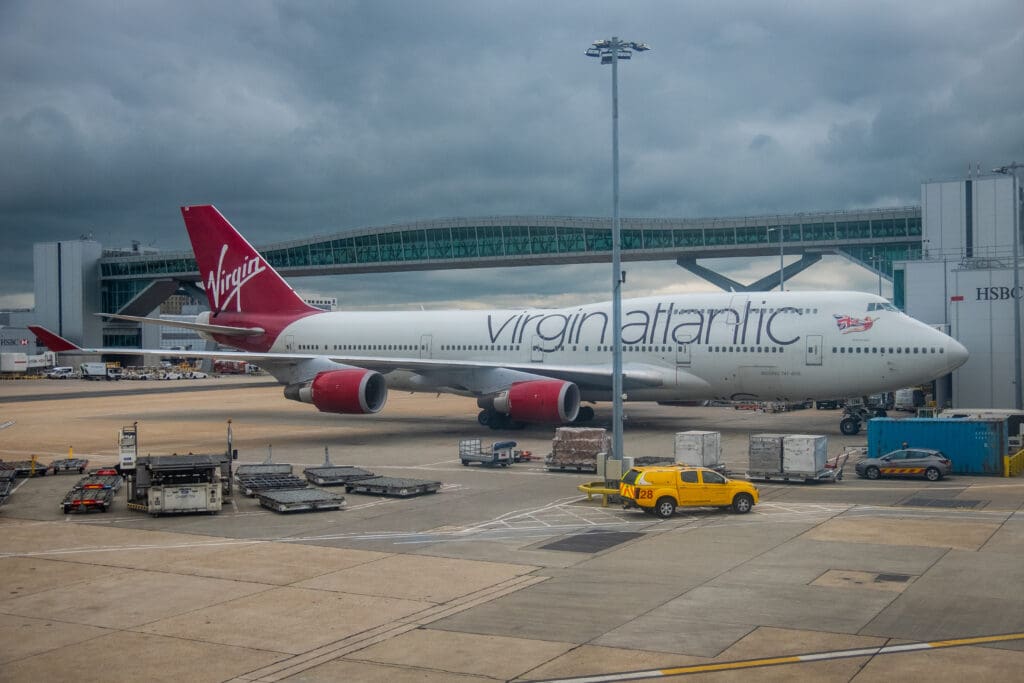Virgin Atlantic, under the leadership of Sir Richard Branson, is considering a return to Gatwick Airport and exploring flights from regional airports like Bristol.
This shift comes after the airline abandoned hopes of a third runway at Heathrow being built before the end of the decade.
Chief Executive Shai Weiss revealed that Virgin Atlantic is evaluating increased flights from its secondary hub in Manchester and plans to expand its Virgin Holidays arm as part of a growth strategy from 2025 to 2030. The blueprint, internally known as VX30, aims to grow revenues by 20% beyond the expected £3.5 billion this year.
“We’ve got to rule out a third runway, which leaves either acquiring slots at Heathrow or expanding flights from Gatwick and secondary cities in the UK,” said Weiss.
Growth at Heathrow remains preferred due to its high margins and connectivity, but with the airport operating near full capacity and the third runway plans on hold, Virgin Atlantic is looking at alternative options. Weiss noted that while the airline will continue to seek available slots at Heathrow, these opportunities are limited and expensive.
Currently, some of Virgin’s Heathrow slots are unused following the suspension of services to Israel after the Hamas attacks, but these will be reactivated when flights to Tel Aviv resume in September. Weiss also continues to advocate for a dedicated Virgin terminal at Heathrow, akin to British Airways’ Terminal 5, to be shared with Delta and SkyTeam partners.
Gatwick, where Virgin operated until 2020 before pausing during the pandemic, is a potential target for renewed operations. Gatwick’s chief executive, Stewart Wingate, has expressed eagerness to welcome Virgin back. Virgin still holds operating slots at Gatwick through an agreement with EasyJet, allowing for future reclamation.
The growth plan includes adding one or two new destinations per year from Manchester and potential new flights from Bristol. Virgin’s expansion may also revisit Glasgow and Belfast routes, suspended since the pandemic. To support these additional flights, Virgin Atlantic is considering leasing extra aircraft to expand its fleet beyond the current 45 planes.
Weiss emphasised that all elements of the expansion strategy must ensure profitable growth and not compromise the progress made under the VelocityX plan, which stabilised the airline post-Covid.
“We’ve been through the valley of death and we’ve come out the other side,” Weiss said. Virgin Atlantic is on track to achieve record revenue and a positive operating profit this year, though net profit remains elusive due to servicing £1.5 billion in debt from the pandemic. The company may explore raising fresh equity to reduce this debt, although this would dilute the holdings of Branson and minority owner Delta Air Lines, a less attractive option.
Expanding Virgin Atlantic Holidays, which contributes 20% of revenue, will likely feature in the VX30 plan. Additionally, efforts will be made to leverage collaboration with Virgin Flying Club and Virgin Red rewards programmes.
With these strategic moves, Virgin Atlantic aims to emerge stronger, enhancing its service offerings and expanding its reach while navigating the challenges posed by limited capacity at Heathrow.


